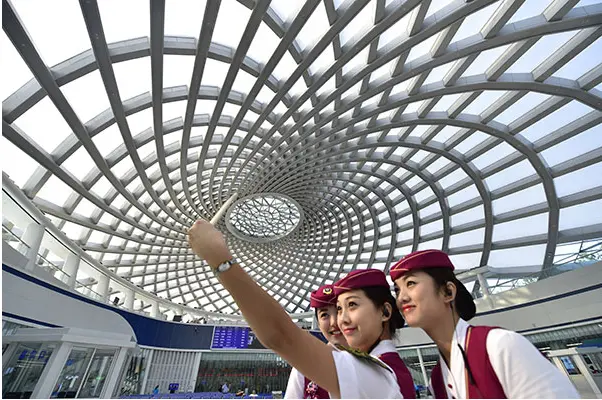Local authorities of Lanzhou City in southwest China's Gansu Province admitted on Tuesday afternoon a lack of regulatory supervision led to a tap water crisis, and pledged to find a second water source for the city as soon as possible.
Excessive levels of benzene in the water affected more than 2.4 million people in Lanzhou from last Friday to Monday.
Lanzhou is the only provincial capital in China without a second water source, said Wang Ning, the spokesman of the emergency response team of the case at a press conference on Tuesday.
The city will start the construction of a second water source soon to ensure water security, Wang said.
Earlier, the tap water supplier Lanzhou Veolia Water Company, a Sino-French joint venture has denied a cover-up of the contamination after excessive levels of a carcinogenic compound were found in its samples.
The supplier collected water samples on April 2 and found abnormal levels of benzene during analysis on Thursday, said Yan Xiaotao, deputy general manager of the Sino-French joint venture.
The excess of benzene was confirmed by further tests at 3 p.m. on Thursday and the company reported the situation to the Lanzhou municipal government at 5 a.m. Friday, Yan said.
There was no late reporting or cover-up, Yan told reporters on Monday afternoon.
However, Wang said there was lack of supervision from the local government after foreign capital was introduced to Lanzhou water supply company in 2006, and they would learn lessons and prevent similar things from happening again.
On Monday, six residents in Lanzhou filed lawsuits to local courts, demanding an apology and compensations from Lanzhou Veolia.
Five of them jointly filed a lawsuit against the company to the Lanzhou Intermediate People's Court. In the indictment, they alleged the company only cut water supply 18 hours after finding the benzene problem.
During this period, polluted tap water flowed into thousands of households and the plaintiffs drank it and their health suffered, they claim.
They alleged the pollution caused panic and seriously disturbed their lives, demanding the defendant compensate them for the money they spent buying bottled water and for their work delays. They also asked for an apology to be printed in newspapers.
The court rejected the petition, saying it was not in line with laws and regulations.
Separately, a citizen surnamed Li filed a similar petition against Lanzhou Veolia to the Xigu District People's Court. Li demanded the company provide authoritative data on water quality tests for almost the past year and free medical checkups for his family members, said Wu Tianying, lawyer for Li.
Li demanded an apology be published in national media and one yuan in compensation for his mental suffering. Wu told Xinhua the court received the petition on Monday afternoon.
Ninety-four households near the polluted area will be displaced in the coming three days, said the local government.
A temporary clinic set up by the Gansu People's Hospital to handle citizens suspecting benzene poisoning has received nearly 300 consulting patients as of Tuesday. But it has uncovered no poisoning cases.
From 5 p.m. on Thursday to 2 a.m. on Friday, Lanzhou Veolia's tests found benzene levels were 118 to 200 micrograms per liter of tap water in its plants, far higher than the country's limit of 10 micrograms.
The municipal government then warned citizens not to drink tap water from 11 a.m. on Friday to 11 a.m. on Saturday.
China began to adopt compulsory drinking water criteria in July 2012 and the number of indicators increased to 106 from the previous 35. Comprehensive quality tests for tap water are required to be conducted every six months, while daily tests do not include checks for benzene.
Lanzhou Veolia conducted comprehensive tests for all the 106 items for tap water in Lanzhou in accordance with the country's regulations in early March after a strange smell was reported in tap water, said Yan, the joint venture's deputy general manager.
All the indicators met standards and further tests by the Chinese Academy of Sciences found the smell came from decaying grass roots and algae in the source river, he said.
The company is in charge of conducting comprehensive tests for other cities in Gansu and it just incidentally tested tap water in Lanzhou while doing the tests for other places, Yan added.
Tap water supply fully resumed in Lanzhou on Monday.
Lanzhou Veolia is a joint venture with Veolia Water owning 45 percent of its shares and the local government 55 percent. It supplies water to 2.4 million people in four districts of downtown Lanzhou, which has a total population of more than 3.6 million.
Benzene is a colorless carcinogenic compound used to manufacture plastics. The chemical is known to damage the human hematopoietic system, which produces blood.
The pollutants were initially believed to have leaked from a pipeline of Lanzhou Petrochemical, a subsidiary of China National Petroleum Corporation, the country's largest oil company, said investigators.
 简体中文
简体中文



